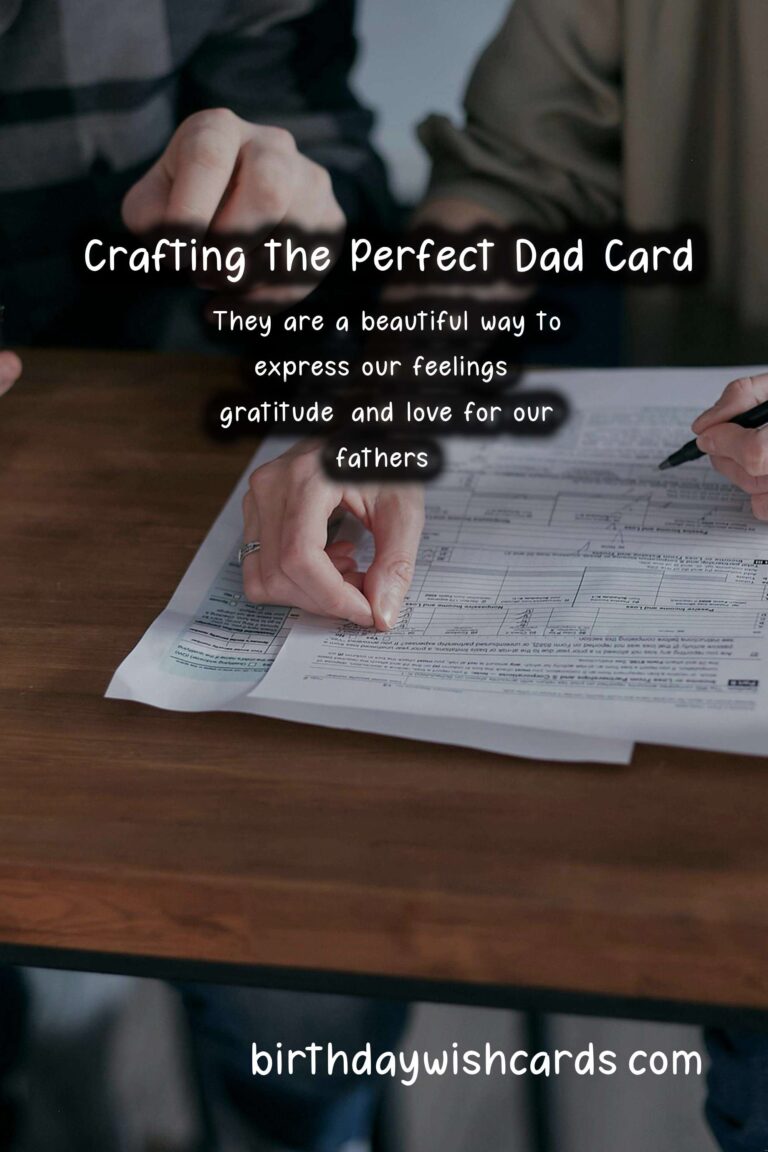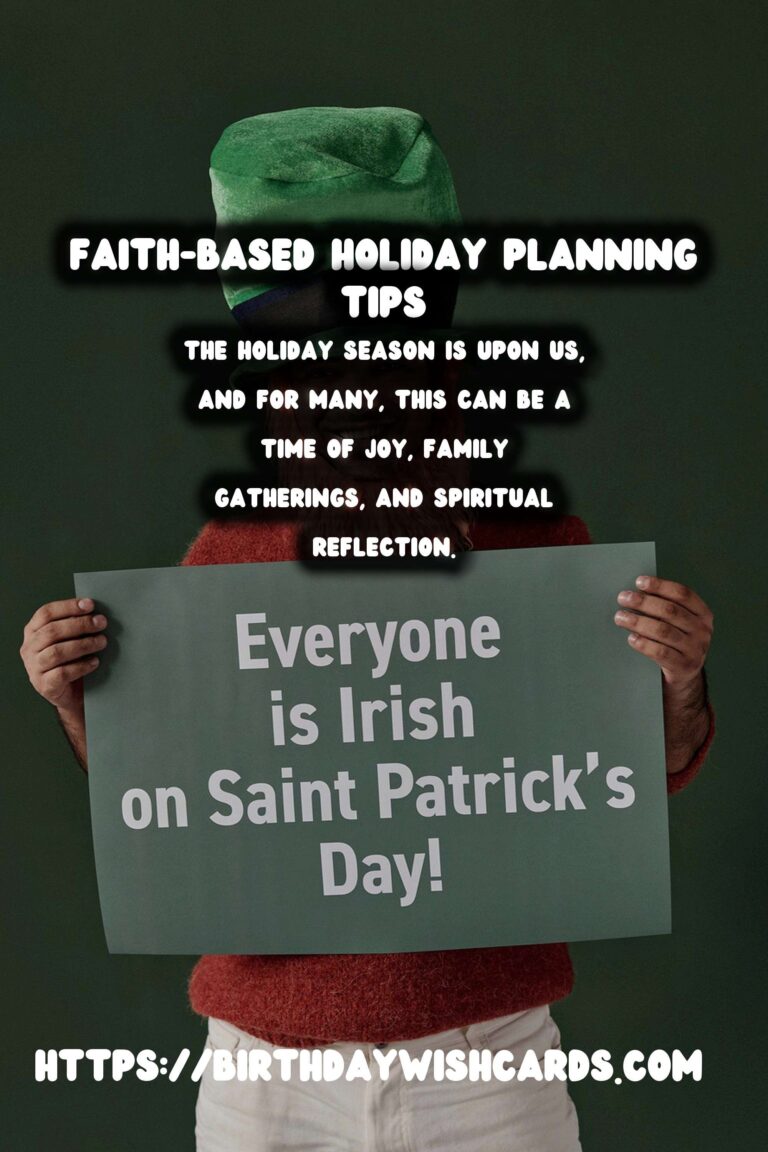Soulful Religious Observance Planning for Beginners
Soulful Religious Observance Planning for Beginners
In today’s fast-paced world, it is easy to overlook the significance of religious observances in our lives. Whether you are planning a small family gathering or a large community event, understanding how to cultivate a soulful experience is essential. This article is designed to guide beginners through the process of planning meaningful religious observances.
Understanding the Essence of Religious Observance
Religious observance is more than mere ritual; it is an opportunity to connect with one’s faith, community, and self. Understanding this essence is the first step in planning a soulful observance.
Every religious tradition has its unique practices, but the core principle remains the same: to facilitate a deeper understanding and connection with the divine. Start your planning by reflecting on the values and teachings of your faith.
Setting Intentions
Begin your planning by setting clear intentions for your observance. What do you hope to achieve? Is it a time for reflection, worship, community bonding, or all three? Defining your goals will provide a framework.
Consider writing down your intentions. This can enhance the sacredness of the observance and can be a useful tool to track progress in your spiritual journey.
Choosing the Date and Time
Selecting the right date and time is crucial. Take into account the availability of your attendees and any significant dates in your religious calendar. Here are some tips:
- Choose a date that resonates with the observed religious significance.
- Consider the optimal time for gatherings among your community.
- Account for any seasonal changes or lunar calendars traditionally observed.
Venue Selection
Next, you’ll need to decide on a venue. This could be your home, a community center, or a church. Your choice will depend on the size of your gathering and the atmosphere you wish to create.
- Home: Offers intimacy and personal touches.
- Community Center: Good for larger gatherings with more resources.
- Religious Institution: Provides a traditional setting with familiar rituals.
Creating the Agenda
After securing a venue, the next step is creating an agenda. Your agenda should include:
- Opening Prayer or Meditation
- Readings or Teachings
- Community Sharing
- Closing Rituals
Each element should flow naturally into the next, fostering a seamless experience for all attendees.
Inviting Guests
Once your planning is underway, extend invitations to your community. Use both digital and physical invites to reach a broader audience. Consider including:
- The purpose of the observance
- Date and time
- What to bring (if anything)
Preparation and Decoration
Preparation also involves creating a conducive environment for a soulful observance. Consider the following:
- Decorations: Choose decor that resonates with the observance. This could include candles, flowers, or religious symbols.
- Seating Arrangements: Ensure that seating promotes community interaction.
- Sound and Lighting: Use soft sounds and lighting to create a tranquil atmosphere.
Choosing Appropriate Readings and Practices
Select readings and rituals that align with your intentions. Here are some sources to consider:
- Religious scriptures or texts
- Spiritual poetry
- Personal reflections
Engaging Activities
Incorporate engaging activities that encourage participation:
- Group discussions
- Prayer circles
- Artistic expressions (like drawing or music)
These activities will enhance the communal aspect and create memories.
Final Touches
As the date approaches, ensure that you have covered all bases:
- Confirm all bookings and reservations.
- Prepare any necessary materials (e.g., printed readings).
- Be ready to adapt to changes such as last-minute guests or unexpected issues.
Post-Observance Reflection
After the observance, take time for reflection. Gather feedback from participants about what worked well and what could be improved for future observances. Document your thoughts to aid in future planning.
Conclusion
Planning a soulful religious observance may seem daunting, but with intention and organization, it can become a fulfilling experience. Remember, the ultimate goal is to create a space of connection, reflection, and spiritual growth. Embrace the journey, and let your faith lead the way!
Soulful religious observance planning is essential for meaningful gatherings.
Begin by understanding the significance of your religious traditions.

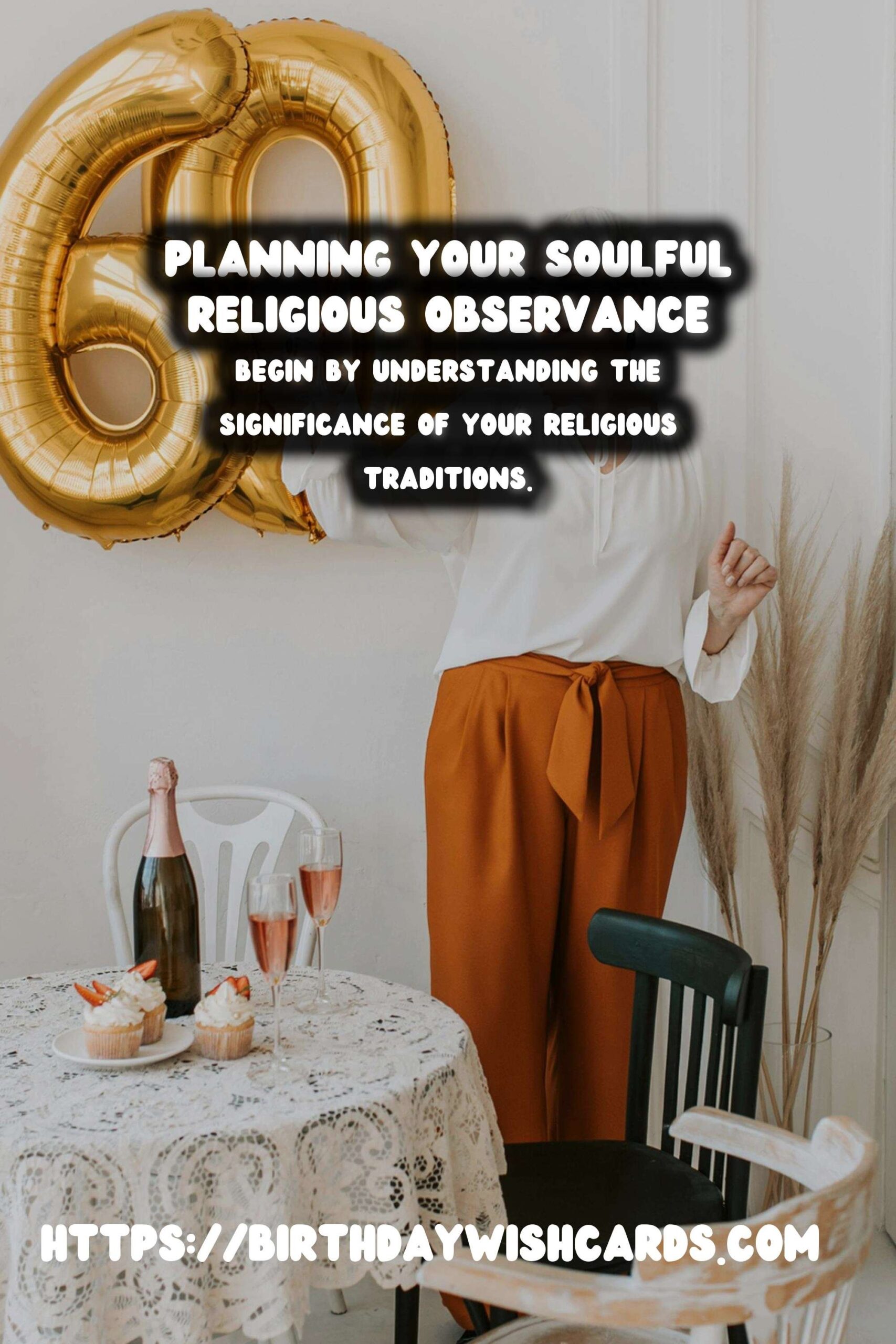


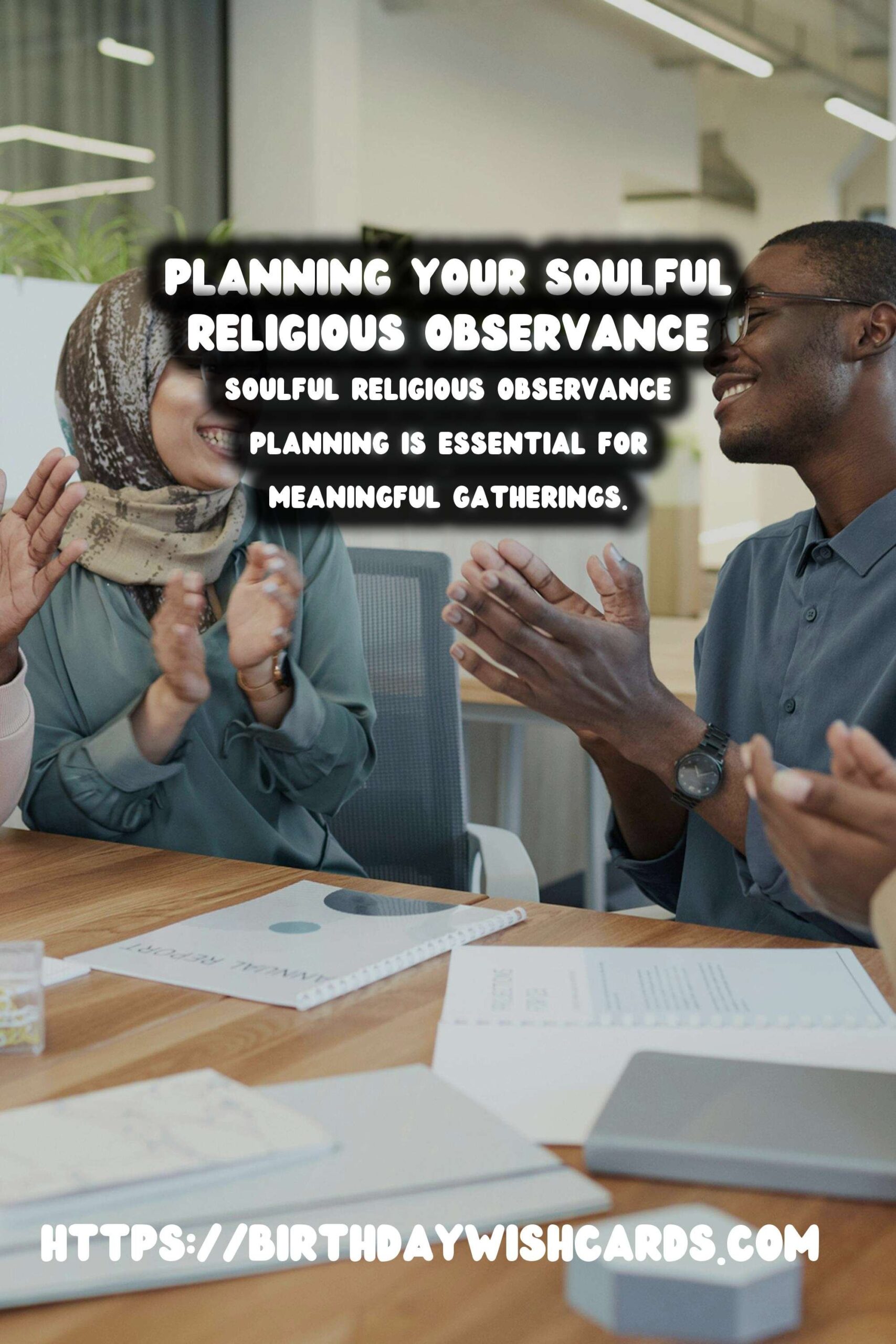


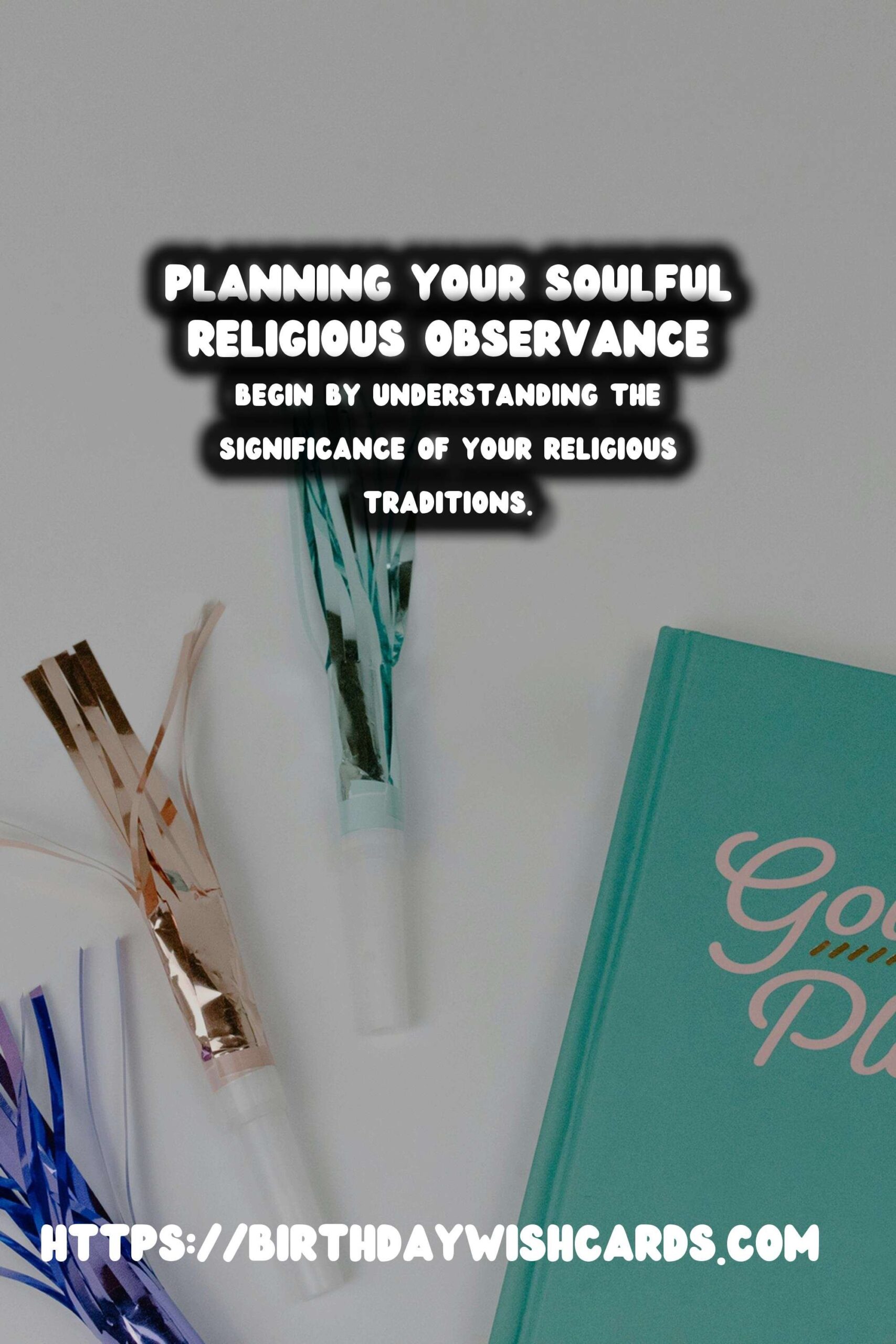

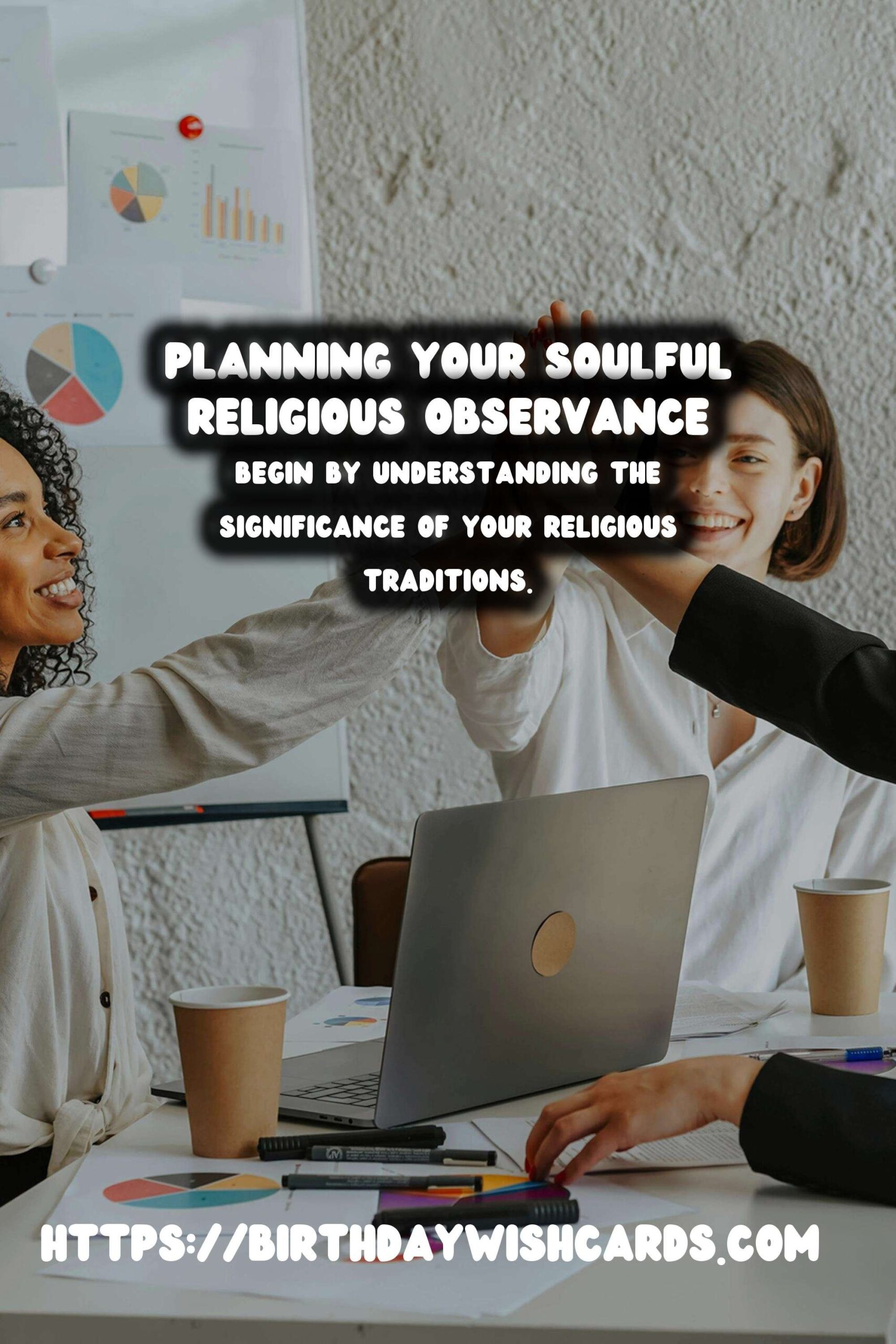
#ReligiousObservance #SpiritualPlanning

